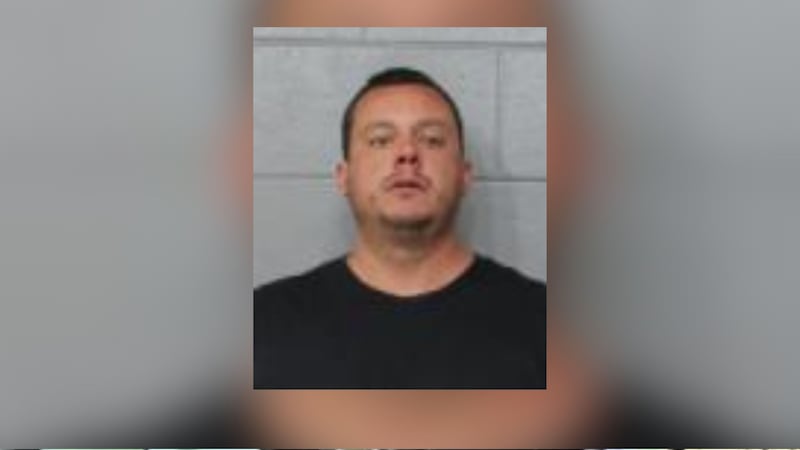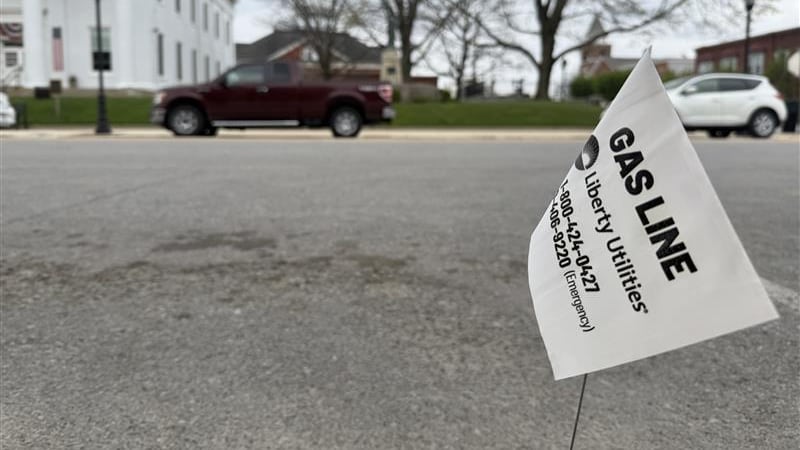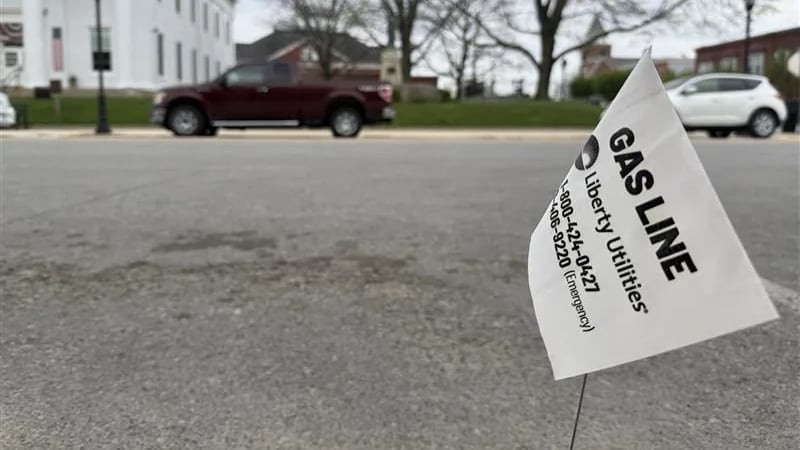DILUTED: A documentary on the release of convicted pharmacist Robert Courtney
KANSAS CITY, Mo. (KCTV) - The Robert Courtney case impacted at least 4,000 patients across Kansas City. He was a trusted pharmacist who diluted life-saving medication for extra money. An FBI sting revealed Courtney diluted chemotherapy treatments. Testing revealed medication was diluted anywhere from 30% to mere traces of medication. Courtney later admitted he watered down medication for AIDS, fertility, diabetes and even eye drops.
The case is exhausting for local families who have endured loss, shock, a plea deal, sentencing, civil trial and now victim notifications of Courtney’s release. Many shared personal stories of the deaths of their loved ones where full-strength treatments might have made a difference.
It was the FBI’s No.1 case until the towers fell on 9/11. More than 20 years later, “Diluted” shines a spotlight on one of the most sinister crimes to ever take place in Kansas City.
“YOU’RE A MONSTER”
Santana Cummings wonders what life could have been if a different pharmacist mixed her mother’s cancer medication.
“That really kind of messes with your head, because you have the ‘what ifs’ start creeping in,” said Santana. “My life would be so different.”
Santana’s mom, Sherry, was 32 years old when she was diagnosed with cancer. One year later, she died.
What happened to Santana’s mother came into focus through an FBI investigation — a crime so heinous no one wanted to believe it could happen.
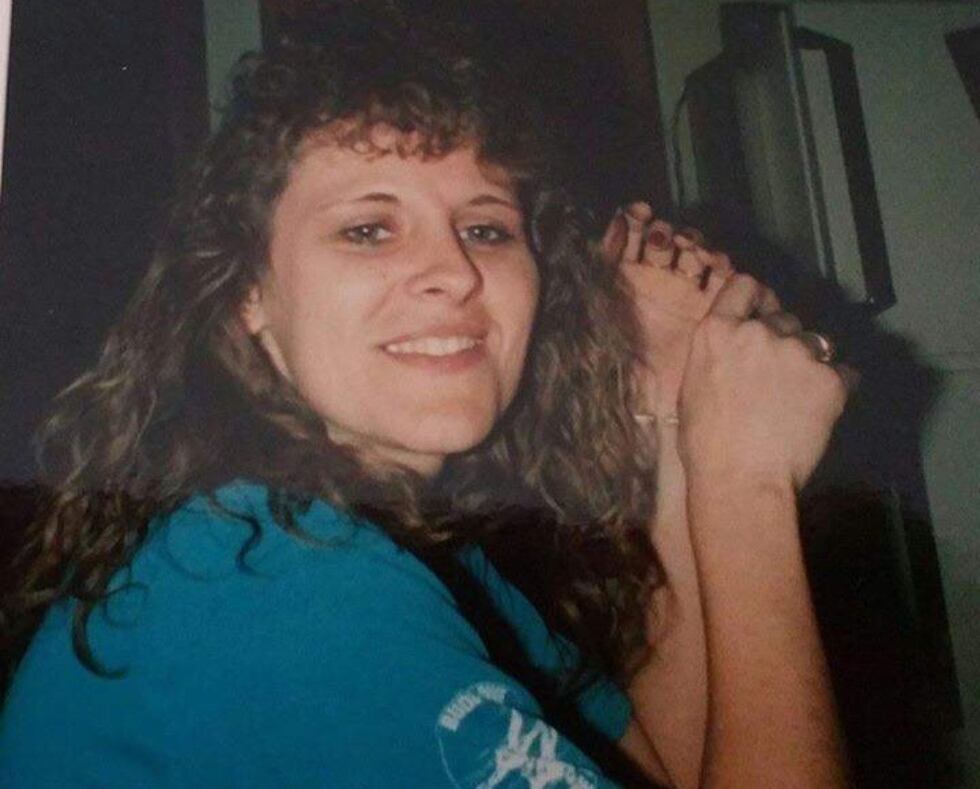
The investigation revealed a trusted pharmacist, Robert Courtney, diluted life-saving medications for money.
“I always say that I feel like he picked the perfect crime,” said Santana. “He took advantage of them while they were sick.”
“He would go in and look these people in the eyes,” said Santana. “He would speak to them while they’re getting an IV drip with diluted medication. You knew exactly what you were doing to these people.”

Santana wonders if her life could have been different. Maybe her mother could have met her grandkids in person.
“I’m one of thousands of people that feel this way,” said Santana. “There are so many families that have been impacted, and I’m just like, ‘How could you let this man go home?’”
“SOMETHING IS WRONG HERE”
In the mid-90s, a new cancer medication called Gemzar hit the market., and it generated much excitement. Darryl Ashley, a senior executive drug manufacturer’s representative, switched companies to Eli Lilly so he could sell it.
“It still wasn’t a cure, but it gave people time — and good time,” said Ashely. “That’s why I wanted to be a part of that drug.”
Gemzar promised fewer side effects, and in his rounds to doctors’ offices, Ashley would ask about it. He said the nurses and patients reported they were tolerating well— perhaps too well.
And then Ashley received even more surprising feedback.
“The nurse would say, ‘You should be excited because we’re using so much of your drug,’” said Ashley.
But the numbers between what Courtney bought, and what the nurses said they used, didn’t add up. And Courtney charged patients less than what the company charged for the medication.
“Something’s wrong here,” Ashley remembered thinking.
He eventually went to Dr. Verda Hunter’s office to voice his suspicions that Courtney may be diluting medications.
THE STING
Darryl Ashley’s hunch was taken seriously.
First, Hunter decided to do her own investigation. She had samples tested, but they did not come back as she had ordered. The samples appeared to be diluted.
So the doctor took her findings to the FBI.

Melissa Osborne, a retired FBI special agent, was also a pharmacist and provided key strategy in the Robert Courtney investigation.
“I really didn’t think that this was something that was done intentionally,” said Osborne. “I thought that this could have been an error on the pharmacist or a mistake, or misunderstanding. I really didn’t expect it to be the crime that it ended up being.”
They set up a sting.
‘OMG’ MOMENT
The FBI had Dr. Hunter reach out to get more medicine. Investigators placed an order for fictitious patients for the medications. They were flown to the FDA lab for testing.
“When we got it 24 hours later, all of the covert purchases had anywhere from I think around 28-30 percent down to almost 0 percent,” said Osborne. “Just a mere trace. Basically nothing.”
“They said ‘somebody’s doing this, and they’re doing it intentionally,’” said Osborne.
Robert Courtney’s pharmacy at Research Towers was raided and shut down. And the case became public.
NATIONAL NEWS
The case made headlines and was the top story for local news outlets.
Suddenly, families across the city realized they might be connected to the case everyone was talking about.
Kansas City was in shock. Nothing like this had ever happened before. People were stunned, outraged and horrified that a respected health professional, a leader in his Northland church and a family man could have done this.
The FBI named the case “Diluted Trust.”
Osborne was asked to explain the investigation in the nation’s capital. But on that day, the whole world changed.
“I was in Washington, D.C. with my boss and the special agent in charge of the Kansas City office when everything broke loose on 9/11,” said Osborne. “Before those planes hit the Pentagon and the Twin Towers, the Robert Courtney case was the number one case an investigation for the FBI.”
While Courtney’s cases moved off the national stage, it was still major news in Kansas City.
PLEA DEAL
It looked like Robert Courtney had the perfect life. He graduated from UMKC in 1975 and then quickly settled into his suburban life. He was a family man, a deacon in his church, and he had made a pledge to one of the church’s fundraising efforts.
The FBI set up a hotline for patients and doctors to call in tips. Law enforcement called the fallout from Courtney’s actions a health crisis and criminal investigation all at once.
In order to get all the information they could, prosecutors made a plea deal with Courtney that involved 34 patients. He pleaded guilty to 20 felony counts. U.S. Attorney Todd Graves said at the time, “He will effectively have a life sentence to serve.”
At the time, they had no idea that Courtney’s actions involved thousands of patients. Nor did they expect Courtney to be released from prison after 22 years.
THE DEBRIEF
Robert Courtney pleaded guilty to 20 federal charges and would get 30 years in prison, but that was only part of the plea deal. He had to tell investigators everything. Investigators wanted to know what was diluted and why.
It was bigger than anyone suspected.
“As we continued to interview Robert Courtney, he initially admitted that he had diluted these medications for a small number of patients for several months,” said Melissa Osborne, the FBI agent and pharmacist leading the questioning.
Courtney told them he needed extra money to pay a million-dollar pledge he made to his church and to pay a high tax bill.

“When we hear that, we’re like, ‘There’s no way somebody goes from doing things the right way to all of a sudden doing them the wrong way,’” said Osborne. “So we keep interviewing him, and as we keep going at him. He’d been doing it longer and longer.”
“We knew there was just no way you did it this one time and that was it,” said Osborne. “It was too elaborate and too heinous.”
While investigators grew to understand how extensive the diluting was, they never learned who received a half dose, or maybe nothing at all. Courtney did not keep records. For patients, their medical treatment remained a mystery.
“He really never thought that he would be caught,” said Osborne. “I think his only remorse was that he was caught.”
FOLLOWING THE MONEY
Courtney’s misdeeds proved to pay big dividends for him. At the time of his arrest, Courtney’s bank accounts and investments showed a net worth of $19 million — the equivalent of $33 million in 2024. It was a testament to how many drugs were diluted and how long the scheme lasted.
“We’re looking at greed because there’s a lot of money involved in these medications,” said Osborne. “And he agreed with that. But then there were some medications that he tampered with that were like, $5.”
In the end, Courtney admitted to:
- Diluting 72 medications
- Affecting more than 4,200 patients
- 98,000 prescriptions
- All since 1992
Although most of the medications were prescribed for cancer patients, Courtney also diluted medications for fertility treatments, diabetes, AIDS and even eye drops.
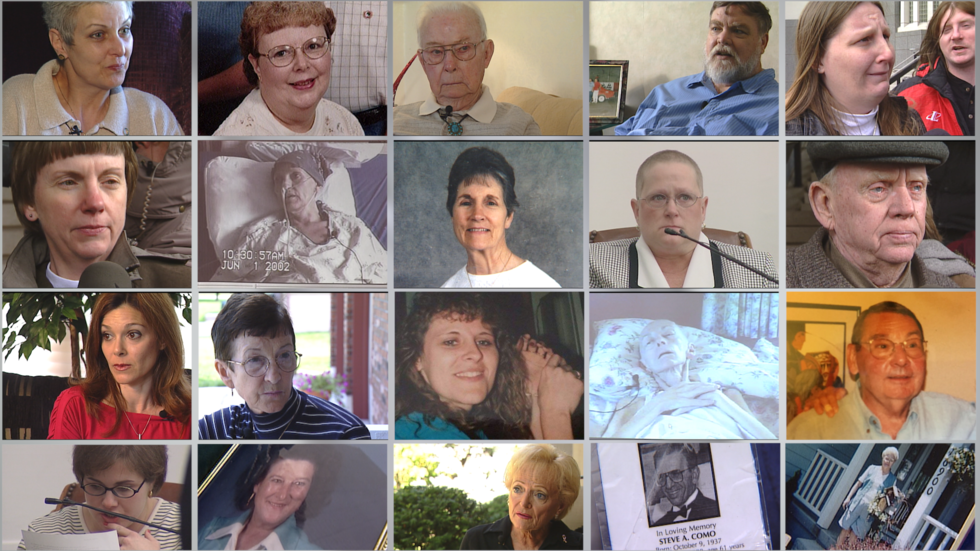
“It was gut-wrenching work,” said Osborne. “But I’m glad we stopped him, and I do believe that it was a real public safety issue.”
STORIES BEHIND THE NUMBERS
Investigators went through a spreadsheet of every prescription Courtney filled.
Did he remember the first time he diluted that medication? No.
Did he remember the last time? No.
Most of the time, Courtney couldn’t remember details because of diluted medications just because of “business as usual.”
But investigators said he did remember one instance. And that was because he didn’t just dilute the medicine of strangers, he also did it to people he knew personally. They asked if he remembered a particular instance.
“And he goes, ‘Yes.’” Osborne said. Investigators were surprised. “‘Okay, why?’ He says, ‘oh, because it was for the wife of a friend of mine.’ Well, he didn’t have any reaction, but all of us around the time, including his attorneys, it was almost like the blood just went out of their faces…we all just got sick from it. He did not really react at all.”
“Even then he’s in the orange jumpsuit, in Lansing prison, he still exuded an arrogance,” said Osborne. “And when I looked him in the eye, the whole time that I would spend time with him, I saw a monster.”
“IT’S NOTHING PERSONAL”
Mike Ketchmark, an attorney who represented hundreds of families in injury and wrongful death lawsuits filed against Courtney, interviewed Courtney in prison.
“I met him, and he’s in handcuffs and he’s in the prison cell,” Ketchmark remembers. “I walked and he smiled at me and asked me if there’s any way I could consider getting him a Coke.”
“I was stunned,” remembered Ketchmark.
Ketchmark said that Courtney wouldn’t answer his questions. Courtney repeatedly invoked his Fifth Amendment right.
Finally, Ketchmark got up to leave.
“When I got up to leave, he says ‘It’s nothing personal. I’m just doing what my lawyers told me,’” remembered Ketchmark, “It was a level of creepiness to it. It scared me to think that there’s people like him who exist in our world.”
GEORGIA HAYES’ TRIAL
Georgia Hayes, a wife and mother, had cancer.
Through a series of events, Georgia found herself in a place she never asked to be — front and center representing hundreds of Robert Courtney’s patients.
Hayes filed the first of more than 400 lawsuits against Courtney. It was the only one to go to trial.
“MY LIFE WILL NEVER BE THE SAME”
The lawsuit was heard in 2002 several months after Courtney admitted to diluting chemotherapy drugs. But it was the first time many in Kansas City received a clear picture of the case and heard testimony from one of his victims.
“Without a doubt, my life will never be the same,” Georgia said.
She testified about how she first learned about the act.
“My husband and I were watching TV and there was a little blurb about a pharmacist who had diluted chemotherapy drugs,” said Georgia. “And when they told the story, it hit me. I had been one of those patients.”

She told jurors that learning that was worse than finding out you have cancer.
“It’s like being hit in the stomach with a bowling ball,” said Georgia.
Georgia was certain she was among the patients who were given diluted medication. In fact, she had proof. She could compare a treatment she received from Courtney with another she obtained from another pharmacist.
She had never felt sick or had major side effects when Robert Courtney mixed her medicine, but she had a strong reaction the one time she had her chemotherapy treatment somewhere else.
She received one treatment while hospitalized at the Cass County Regional Hospital in Harrisonville, Missouri.
Georgia suddenly lost her hair.
“It was falling out in the sink as I was washing my hair and in clumps,” Georgia testified. “And I remember a nurse walking in a little startled seeing all this hair everywhere. And I remember telling her that she shouldn’t drink the water.”
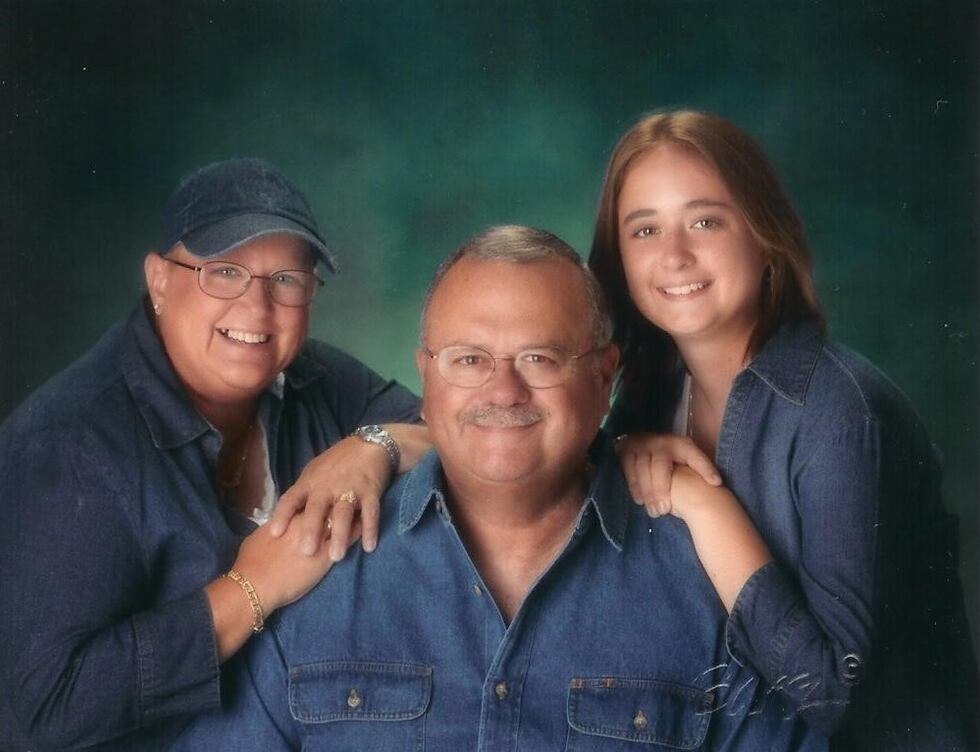
Georgia testified in court about openly questioning her doctors.
“I was afraid as I was calling them,” Georgia said. “I was afraid to accuse someone of not giving me enough chemo. So, I erred on the side of caution and said that the hospital gave me too much.”
EMOTIONAL COURTROOM
The trial included gut-wrenching videos of patients too sick to testify in person. Georgia talked about friends she made while undergoing treatment who found out too late that they weren’t given the right medications.
Doctors explained that Georgia likely missed her best chance to beat cancer. It had spread. But Courtney’s attorneys had depositions from two doctors skeptical that she was sicker because of the watered-down drugs. There was no way to know.
“To this day and probably forever, I will wonder, what if I had gotten what I should have gotten,” said Georgia.
Georgia’s teenage daughter Meckenzie also testified. She brought up the moments her mom would likely miss.
“To see me graduate, get married, have kids,” Meckenzie told the jurors.
Georgia was awarded $2.2 billion. As they left the courtroom, every juror hugged her.
The verdict was largely symbolic because the federal government had seized Courtney’s assets. Georgia understood that and said the suit was never about the money.
“Though we will probably never see a dime from the verdict, I’m ecstatic that justice has prevailed, and the precedent is set,” said Georgia.
AFTER THE TRIAL
Georgia died a few years after the trial. She did make it to Meckenzie’s high school graduation but missed other big moments in her daughter’s life.
Meckenzie recently shared these thoughts in writing to KCTV5:
“WHY CAN’T HE JUST SERVE HIS TIME?”
In late July 2024, Robert Courtney will be released from prison to home confinement after serving 22 years of a 30-year sentence.
This is not the first time he was scheduled for release.
In July 2020, Cities across the country were largely shut down because of COVID-19. Everyone looked for solutions on how to socially distance people in workplaces, schools and even prisons.
The Bureau of Prisons wanted to release non-violent offenders and those perceived to be at low risk.
One of those being considered for release was Robert Courtney.
THE PUBLIC FIGHTS BACK
“Good heavens,” said Marj Vermillion. “How could he not be a danger?”
Marj’s husband, Byron, had been a dressmaker in Kansas City. He had just retired when he learned he had lung cancer. Robert Courtney was his pharmacist.
Even at the height of a global pandemic, Marj Vermillion invited KCTV5 into her home to talk about her husband and Courtney’s upcoming release.

She couldn’t believe Courtney fit the criteria.
“Is he finished with his murdering?” asked Marj. “I look at him as a dangerous person. And 30 years was a gift to him. He should have spent the rest of his life in prison.”
Marj wasn’t alone in her objection. A firestorm erupted on social media as the public became aware of Courtney’s planned release.
Even Kansas City Mayor Quinton Lucas weighed in on social media in 2020.
“I can only imagine the difference between Robert Courtney and the thousands locked up for drug offenses still serving almost full sentences,” wrote Lucas on Twitter. “Embarrassing. Courtney misled 4,000+ sick and dying cancer patients and profited millions. Sad how human we are only to some.”
At the last minute, Courtney’s release was stopped due to public outrage and pressure from politicians.
COURTNEY APPEALS FOR RELEASE
At that time in 2020, Robert Courtney appealed directly to a judge for release. He represented himself in court and filed a document with his plea.
Courtney wrote in court documents that he had changed — and that prison works. He claimed that he was now reformed and because of that, 30 years is too long.
He quoted a Bible scripture and Abraham Lincoln about the importance of mercy.
He acknowledged his crimes but argued he’s older and no longer a risk. Courtney said he has had health problems: a stroke, three heart attacks and suffering from internal bleeding. Courtney also claimed he has had cancer.
He pointed out he has been a good inmate and even turned in fellow prisoners who broke the rules. Courtney wrote about leading singing and worship groups inside the prison chapel.
And finally, Courtney asked the judge to look at the newly passed First Step Act, which allows for the early release of inmates.
The judge denied the motion, but the First Step Act would be called upon again.
FIRST STEP ACT BOUNCES BACK
Families believed that the threat of an early release was over. Robert Courtney remained in prison. He’s not in Littleton, Colorado.
By now, families are well aware of the extent of the case. At the time of his plea, investigators believed it was 34 patients who received diluted medication — now everyone knows it’s more than four thousand.
Many of his patients and their families don’t think the 30-year sentence is enough, but they feel that they at least stopped his early release.
Then comes 2024. The Bureau of Prisons notifies victims’ families of two new decisions:
- Courtney has been approved to go to a halfway house in Springfield, Mo., and even worse,
- Courtney was granted home confinement.
When families push for an explanation, they’re told it’s because of the First Step Act. The same one Courtney referenced in his 2020 appeal.
The criminal reform bill allows federal inmates to earn “time credits” off their sentences for good behavior. But the law says some prisoners won’t be eligible if they are convicted of violent crimes.
Courtney pleaded guilty to charges of tampering with consumer products, adulterating drugs, and mislabeling drugs.
THE DEVIL’S IN THE DETAILS
Among the goals of the First Step Act is to help ease the overcrowding of federal prisons.
The bill got bipartisan support — every Missouri and Kansas Senator and House Representative voted “Yes” to the measure. It was signed into law by then-President Donald Trump on Dec. 20, 2018.
“I still support that,” said U.S. Congressman Emanuel Cleaver. “If it came to a vote next week, I’d vote for it again. However, I’m not sure at all that I can put Mr. Courtney in the category of somebody who should benefit from the First Step Act. I just can’t accept that.”
Cleaver believes 95 percent of lawmakers who approved the bill would agree with him.
On paper, Courtney tampered with medicine.
“They don’t see that the same as hitting somebody with a bat, or stabbing somebody,” said Cleaver. “And I think that’s where common sense must come in. That’s violence.”
Families across Kansas City agree with him. They say what they experienced was a violent crime.
“We shouldn’t even be having this discussion right now,” said Santana Cummings, the daughter of one of Courney’s patients. “He should be serving his full time in prison. If not facing murder charges.”
Kat Duncan, whose father was also a patient of Courtney, said that when she’s asked how her dad died, she tells them, “Cancer didn’t kill him. Robert Courtney killed him.”
“He wants to get out because of good behavior,” said Mindy Mix, the granddaughter of another Courtney patient. “He made the decision to dilute medication. He should have been charged with murder.”
“LET A JURY DECIDE.”
When Robert Courtney was sentenced to 30 years in federal prison, he was 49 years old. Attorney Mike Ketchmark said no one expected Courtney would ever get out of prison.
“When he was sentenced, I think everyone had hoped that he would spend the rest of his life in jail,” said Ketchmark. “And it’s really where he belongs.”
Ketchmark represented hundreds of families of Courtney’s patients. He said they’re angry about Courtney’s upcoming release.
“It’s horrible for them,” said Ketchmark. “It has brought all the pain and anguish and the immense — I mean — you can’t even imagine what these people are going through.”
While critical of Courtney’s upcoming release, Ketchmark had high praise for federal investigators and prosecutors who solved this. He said there was pressure to not just get a conviction but to get to the truth.
Still, he said believes murder charges are appropriate.
“I’m calling upon the justice system to find a solution because he belongs in prison,” said Ketchmark.

Ketchmark acknowledged charging Courtney with murder puts a tremendous amount of pressure on an already overwhelmed prosecutor.
Almost everyone agrees some people died from what happened with their medication. After all, Courtney’s actions affected more than 4,000 patients. But to charge someone with murder, prosecutors need specific victims and go beyond reasonable doubt.
“Let a jury decide that,” said Ketchmark. “Because I can’t imagine any jury who, looking at the situation like this, who’s going to do anything other than realize what (Courtney) did was — he committed murder.”
It is technically possible. Courtney was convicted in federal court. But there’s a different legal system that could address the case — state courts, specifically Jackson County, where Courtney diluted the medications.
There is no statute of limitations on murder charges.
It’s not that investigators didn’t believe that Robert Courtney was responsible for deaths, but they believed they needed to get the plea bargain to get all the information they needed.
“I know that a lot of people in Kansas City really didn’t like that there was a plea agreement, and I totally understand,” said former FBI investigator Melissa Osborne. “A lot of people wanted us to charge him with murder. I wish we could have found a way.”
“We evaluated that, and it would have been nearly impossible to meet the burden of proof and beyond a reasonable doubt for each and every patient,” said Osborne.
COURTNEY RELEASED AS FAMILIES SUFFER
Santana Cummings started a Change.org petition to block Courtney’s release. She has openly discussed her loss and what her mother must have gone through.
“Yeah, it’s heartbreaking,” said Santana. “I can only imagine what was going through her mind. I feel like she fought as long and as hard as she could — and then she was gone.”
Families tell stories of how betrayed they were. One woman told KCTV5 that she personally thanked Robert Courtney at every treatment because she thought he was helping her mother get better.
Now, they know he wasn’t, and they are left with disgust for Courtney and the system that failed to hold him accountable.
“I think he should be sitting in a prison cell for the rest of his life,” said Kat Duncan. “I think they should take pictures of every victim he hurt or killed and just line them up on ceilings — on the wall — so all those people are looking at him every day.”
Mindy Nix said she thought her family, parents and grandmother would all have a difficult time with Courtney’s release.
“We aren’t the ones that will judge him at the ultimate time that his time comes,” said Mindy. “So, his judgment will come the day that he meets the Lord.”
There are more than 4,000 families haunted by Robert Courtney. They will never have the answers to what happened to their loved ones.
They will always wonder, “What if,” and ask, “How could someone do this?”
What they may never know, or be able to understand, is the “why?”
This remains a crime investigators struggle to define and years after this heinous crime came to life, the heartland remains heartbroken.
For more Robert Courtney coverage, click here.
Copyright 2024 KCTV. All rights reserved.

